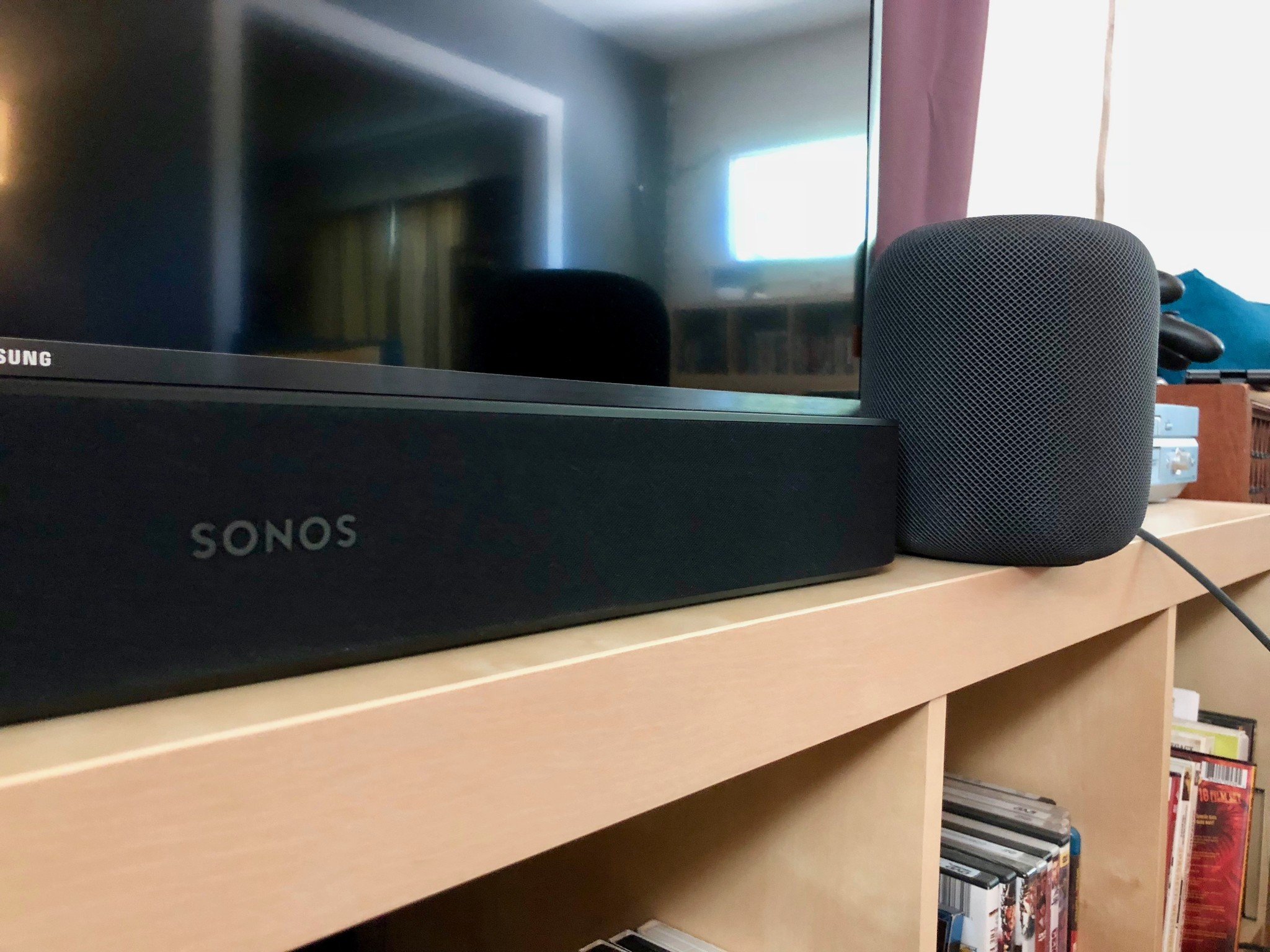Sonos takes a swipe at Apple for making Siri available to other devices

What you need to know
- Sonos has accused Apple of forcing HomePod on people as part of making Siri available to other manufacturers.
- The audio company was speaking during a big tech antitrust hearing in the United States.
Sonos has taken a swipe at Apple over the way it is making Siri available to other companies and their products. With a new senate judiciary hearing into big tech antitrust taking place, Sonos took the opportunity to have a dig at Apple, HomePod, Siri, and anyone else that it could take aim at.
As part of the "Protecting Competition and Innovation in Home Technologies" hearing, Sonos Chief Legal Officer Eddie Lazarus submitted testimony that can be read online. And it's an interesting read at that.
Speaking specifically about Apple's WWDC announcement that it will be making Siri available to third-party devices, Lazarus seems to be concerned that Apple is forcing HomePods on people because, if a HomePod isn't on the same network, Siri won't work on those third-party devices.
Take Apple's announcement that it will now license Siri to third parties in the smart home. As reported in The Verge, Apple will only license Siri to companies that utilize the HomePod as a central hub to connect with Siri.2 Thus, Apple is conditioning interoperability with Siri on companies placing a competitive Apple product alongside their own.
It's easy to see why Sonos is concerned here. It makes smart speakers that compete with HomePod and if people need Apple's speaker in their home to have their smart thermostat use Siri, that puts Sonos at a disadvantage.
Lazarus is less than excited about Matter, the work that both Apple and Google are doing with other companies to try and make smart home accessories more interoperable. Matter could see Siri, Alexa, and Google Assistant all work with the same accessories regardless of who makes them. But Sonos' legal eagle isn't impressed.
No doubt the dominant companies will suggest that new legislation is unnecessary in light of the initiatives they have underway — like the "Matter" alliance3 — that are working towards a degree of smart home standardization to facilitate interoperability. It may well be that these efforts will yield some positive results for the makers of back-end devices, such as light bulbs, garage door openers, and the like by enabling them to interoperate with any of the three major ecosystems (Alexa, Assistant, Siri) using a uniform code base. But count me a skeptic that these types of initiatives will foster consumer choice at the front-end — where consumers control their smart home devices — or do much, if anything, to foster genuine interoperability across the siloed ecosystems of gatekeepers. From the user's perspective, the choices among a very few walled gardens will likely remain the same.
Lazarus then went on to talk about Trojan Horses of all things, somehow finding a way to take umbrage with big tech companies working together for a change.
All of that aside, anyone needing a HomePod to make their smarthome stuff work should check out our list of the best HomePod deals. Or get a Sonos device instead – it'll sure make Lazarus a happier man this morning.
iMore offers spot-on advice and guidance from our team of experts, with decades of Apple device experience to lean on. Learn more with iMore!

Oliver Haslam has written about Apple and the wider technology business for more than a decade with bylines on How-To Geek, PC Mag, iDownloadBlog, and many more. He has also been published in print for Macworld, including cover stories. At iMore, Oliver is involved in daily news coverage and, not being short of opinions, has been known to 'explain' those thoughts in more detail, too.
Having grown up using PCs and spending far too much money on graphics card and flashy RAM, Oliver switched to the Mac with a G5 iMac and hasn't looked back. Since then he's seen the growth of the smartphone world, backed by iPhone, and new product categories come and go. Current expertise includes iOS, macOS, streaming services, and pretty much anything that has a battery or plugs into a wall. Oliver also covers mobile gaming for iMore, with Apple Arcade a particular focus. He's been gaming since the Atari 2600 days and still struggles to comprehend the fact he can play console quality titles on his pocket computer.
